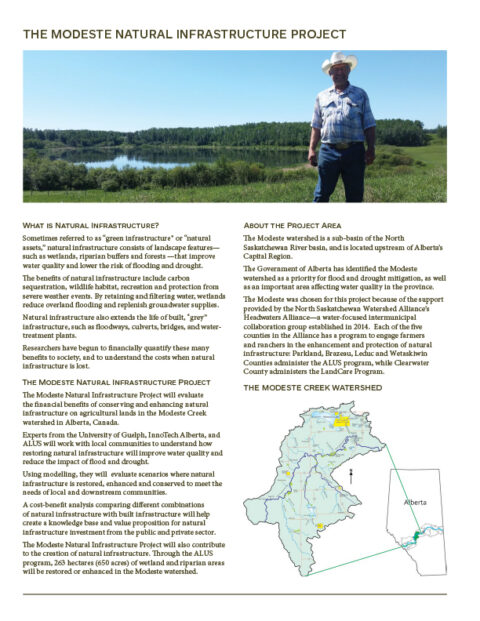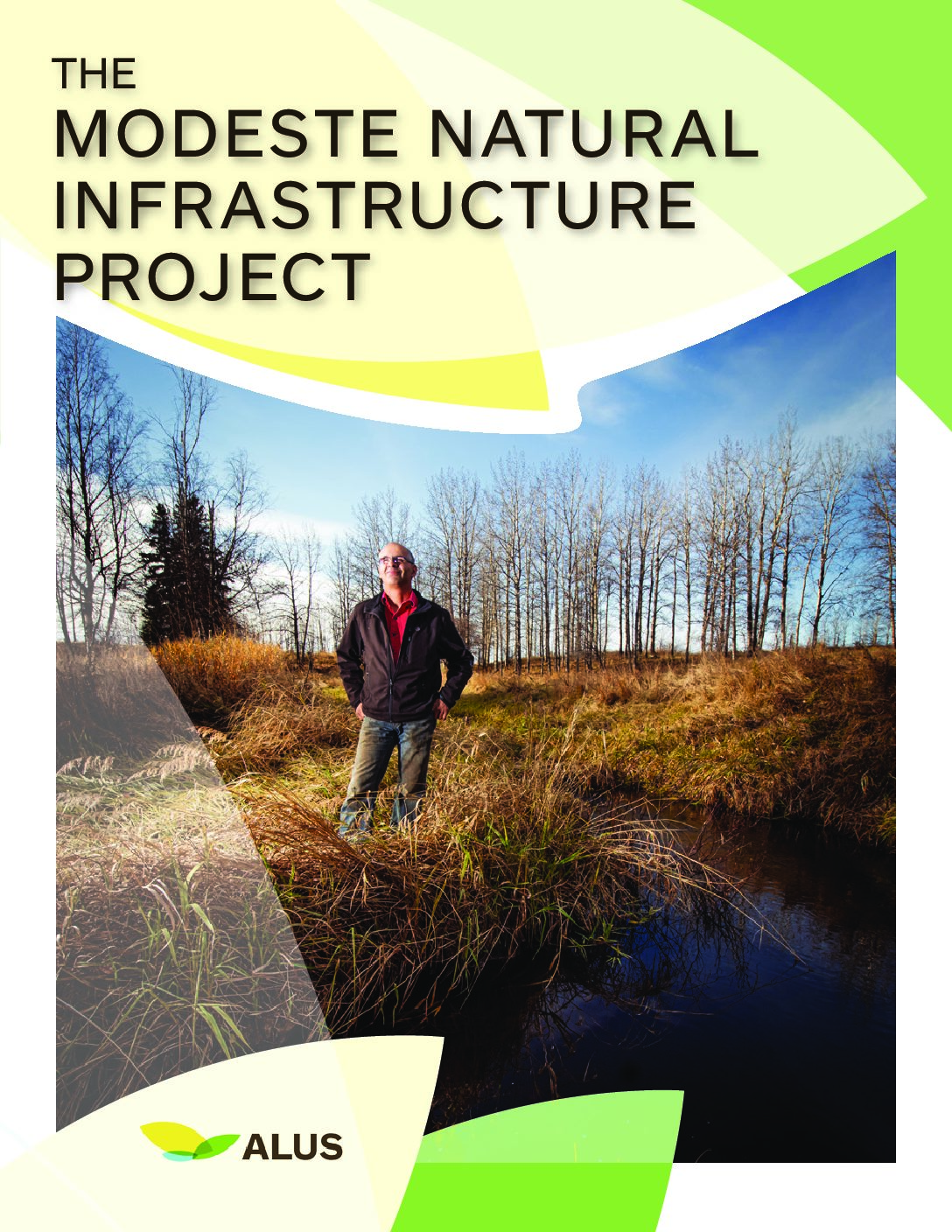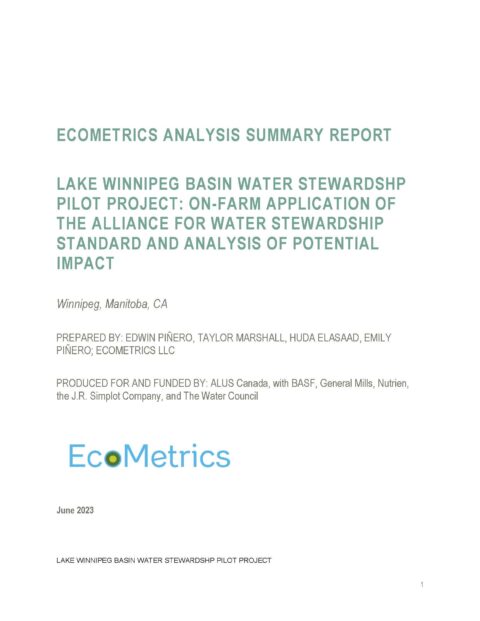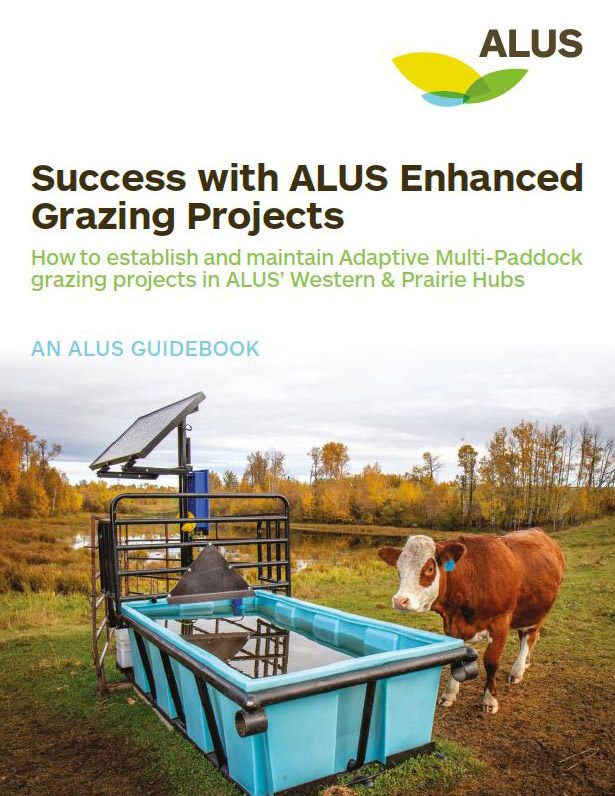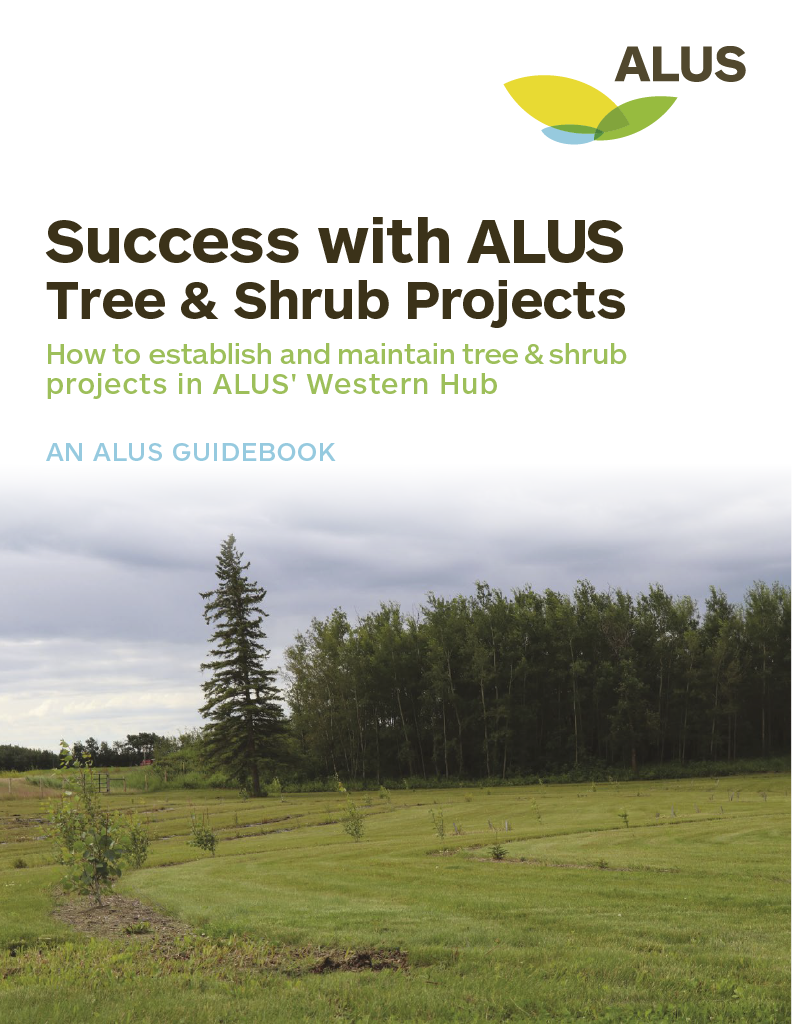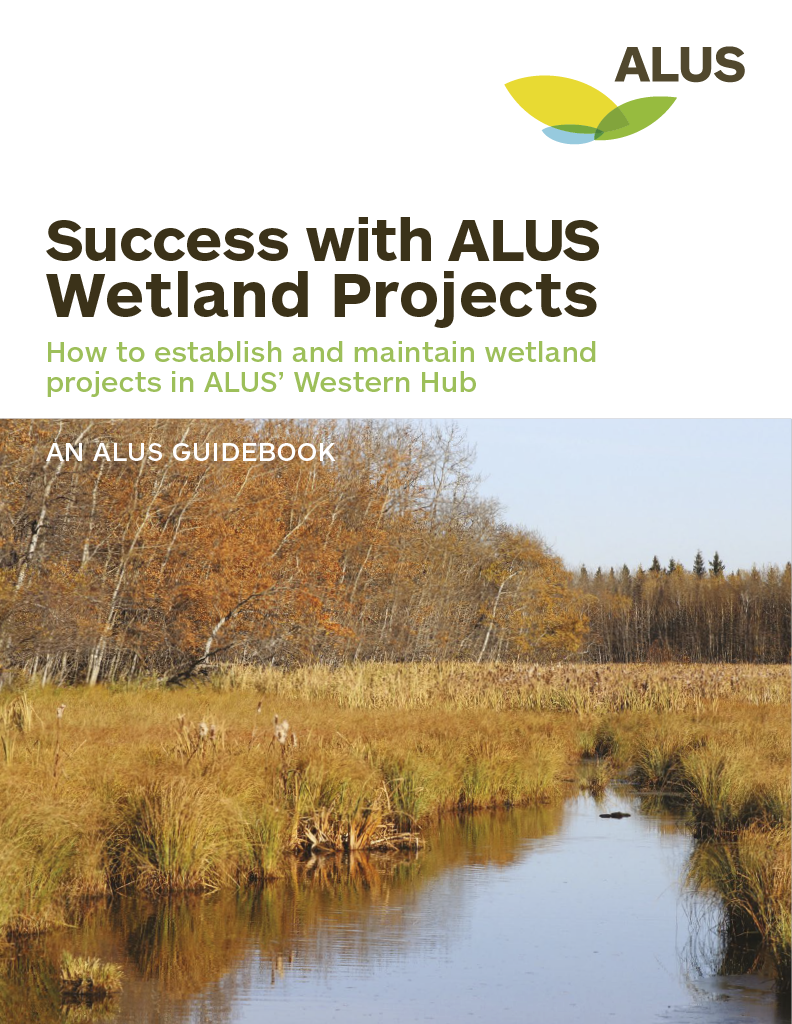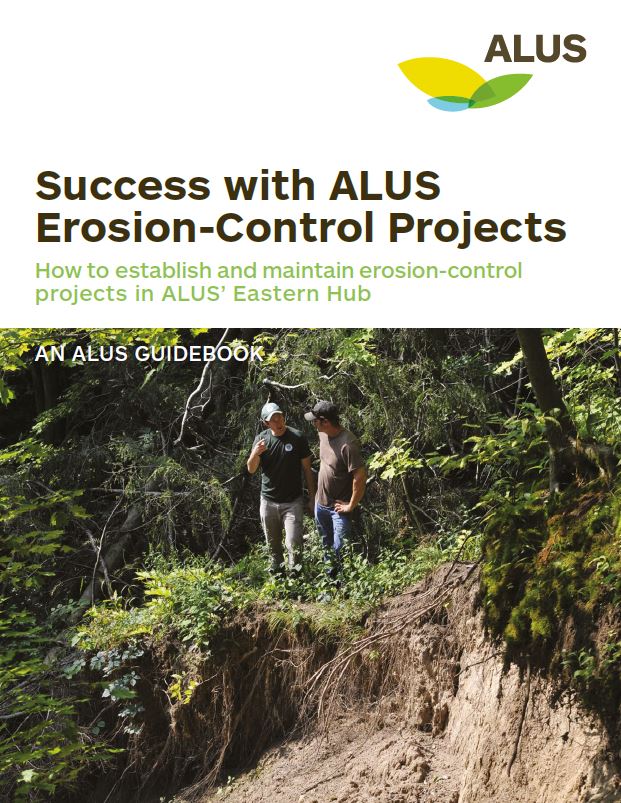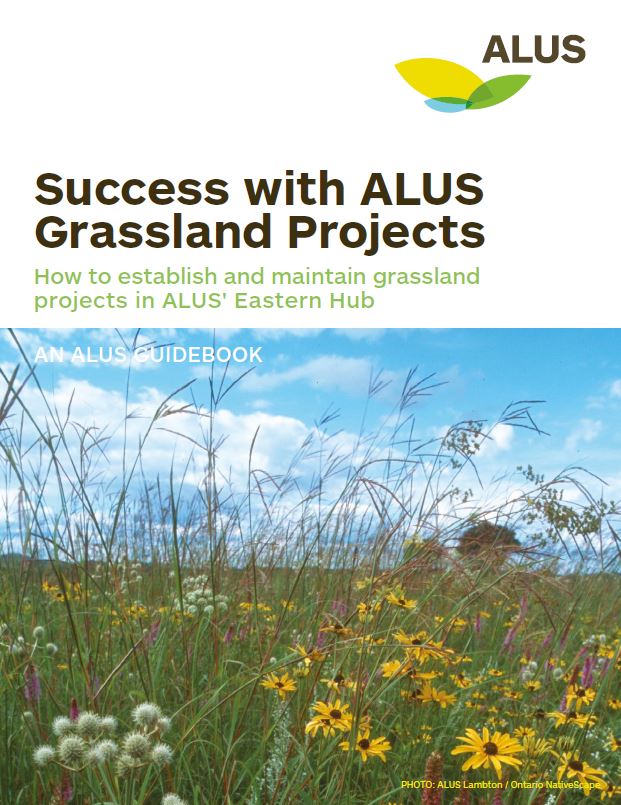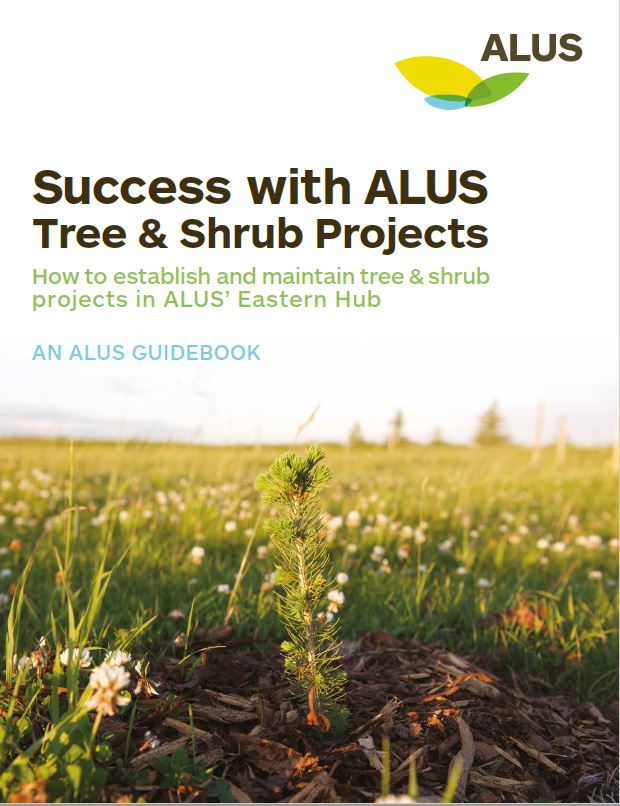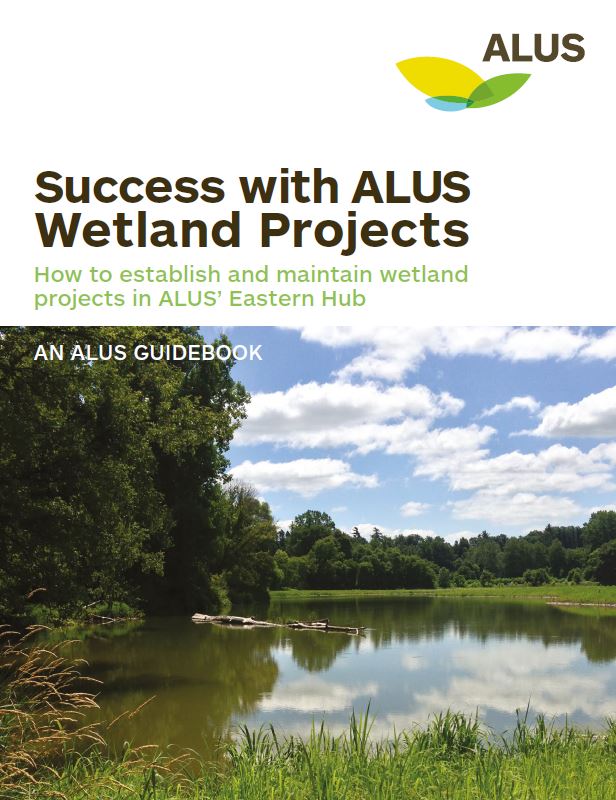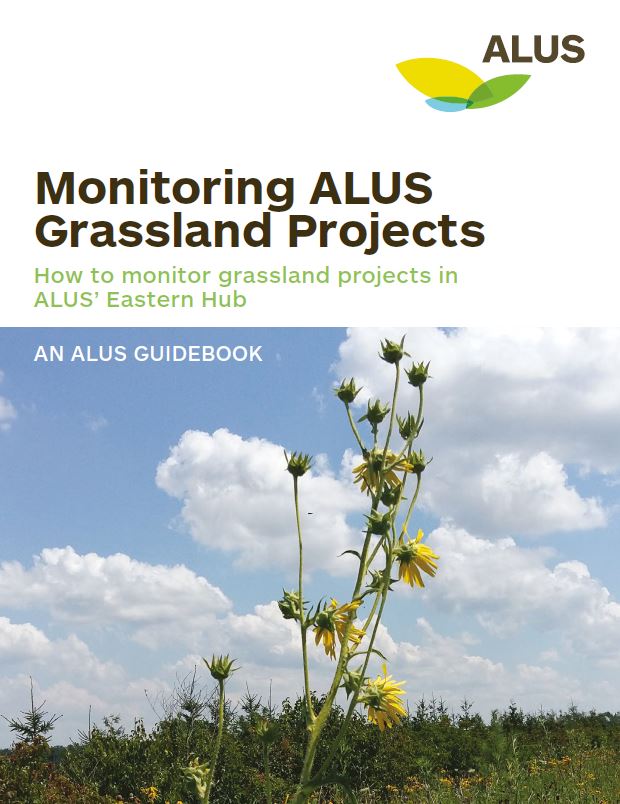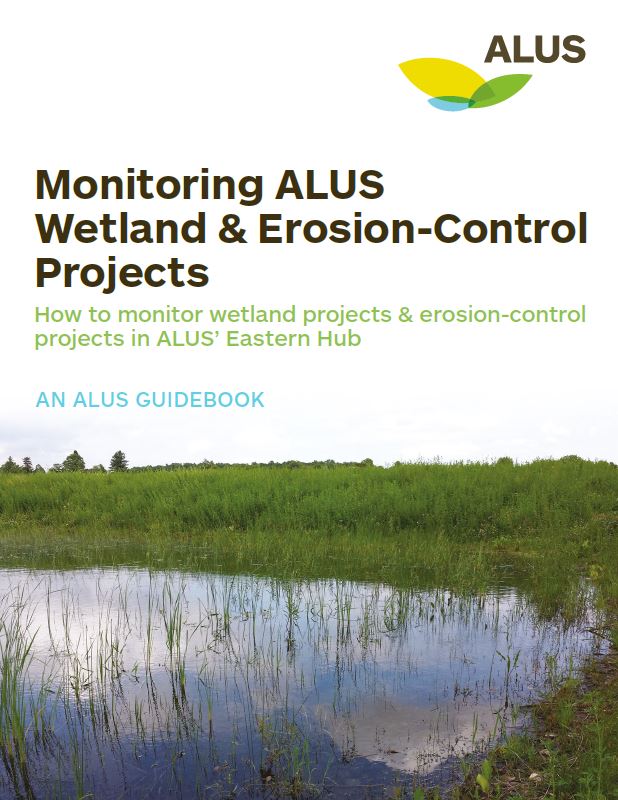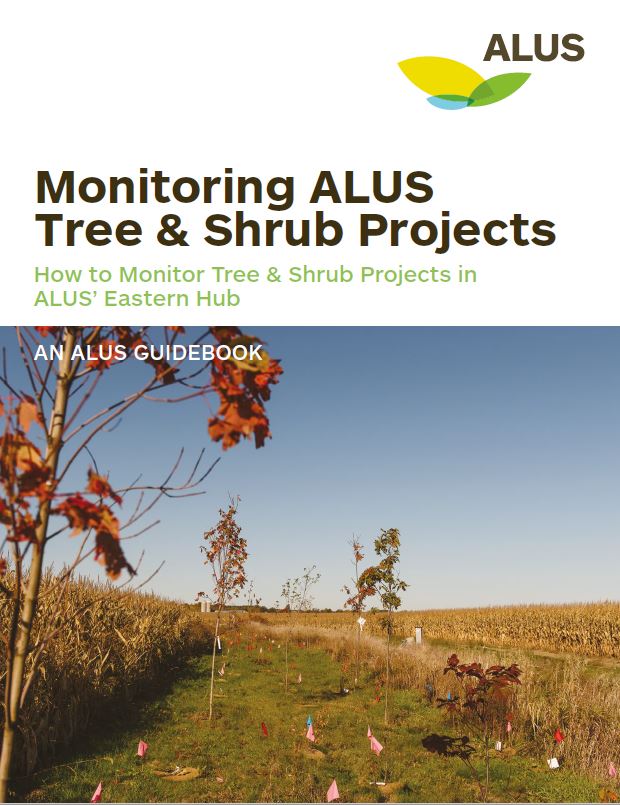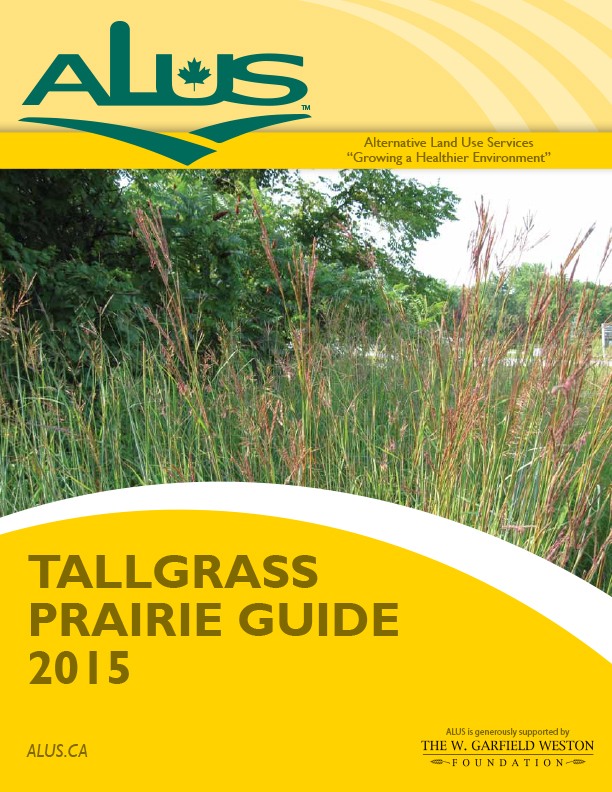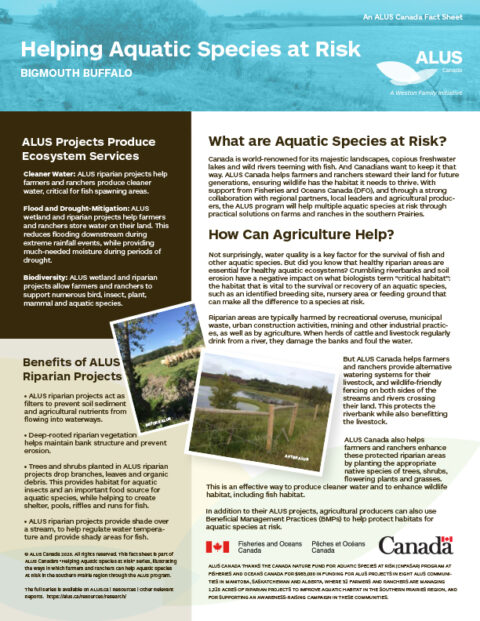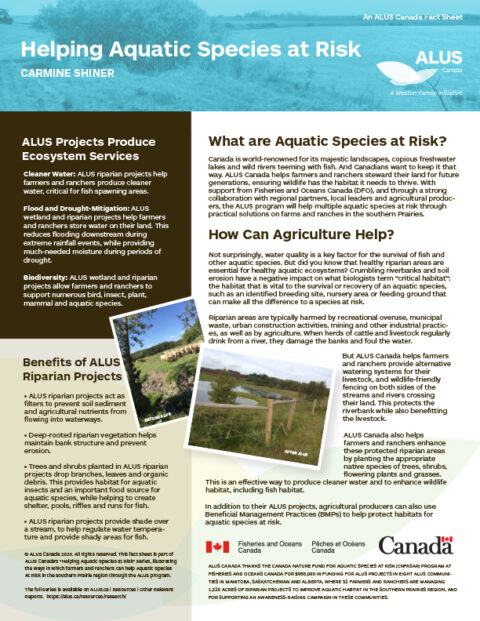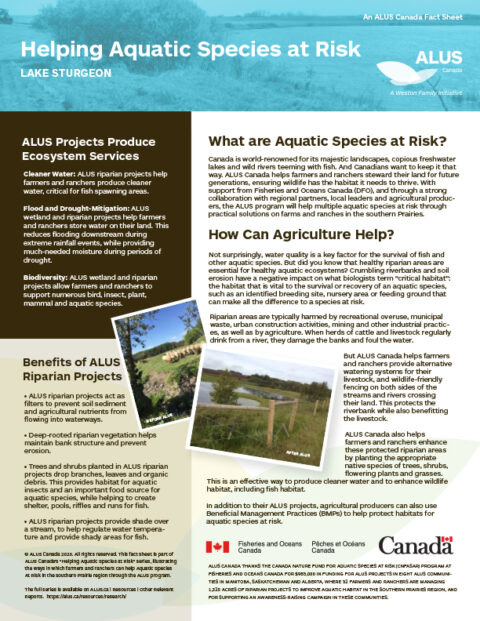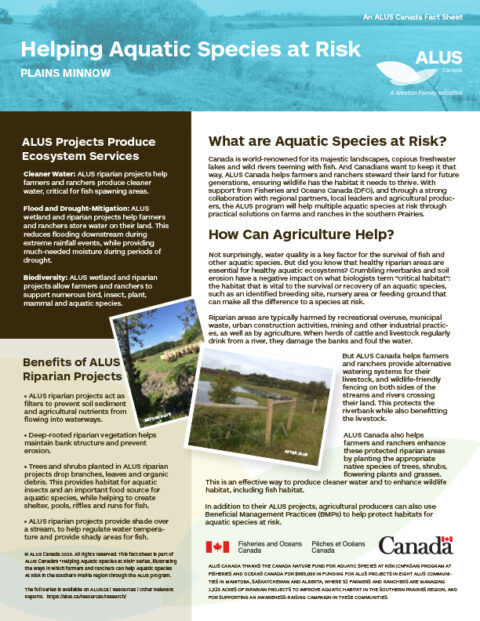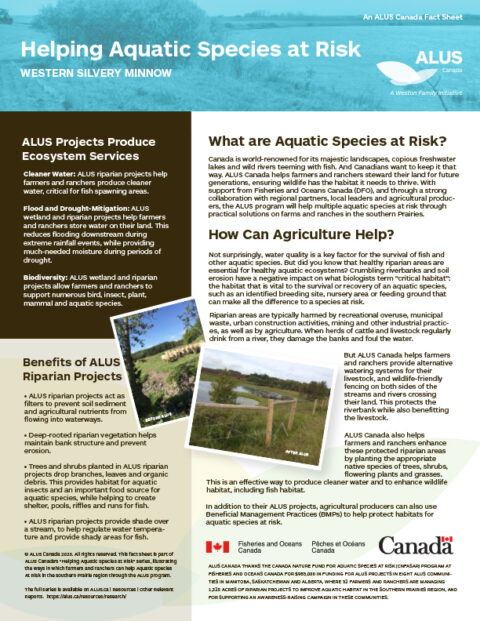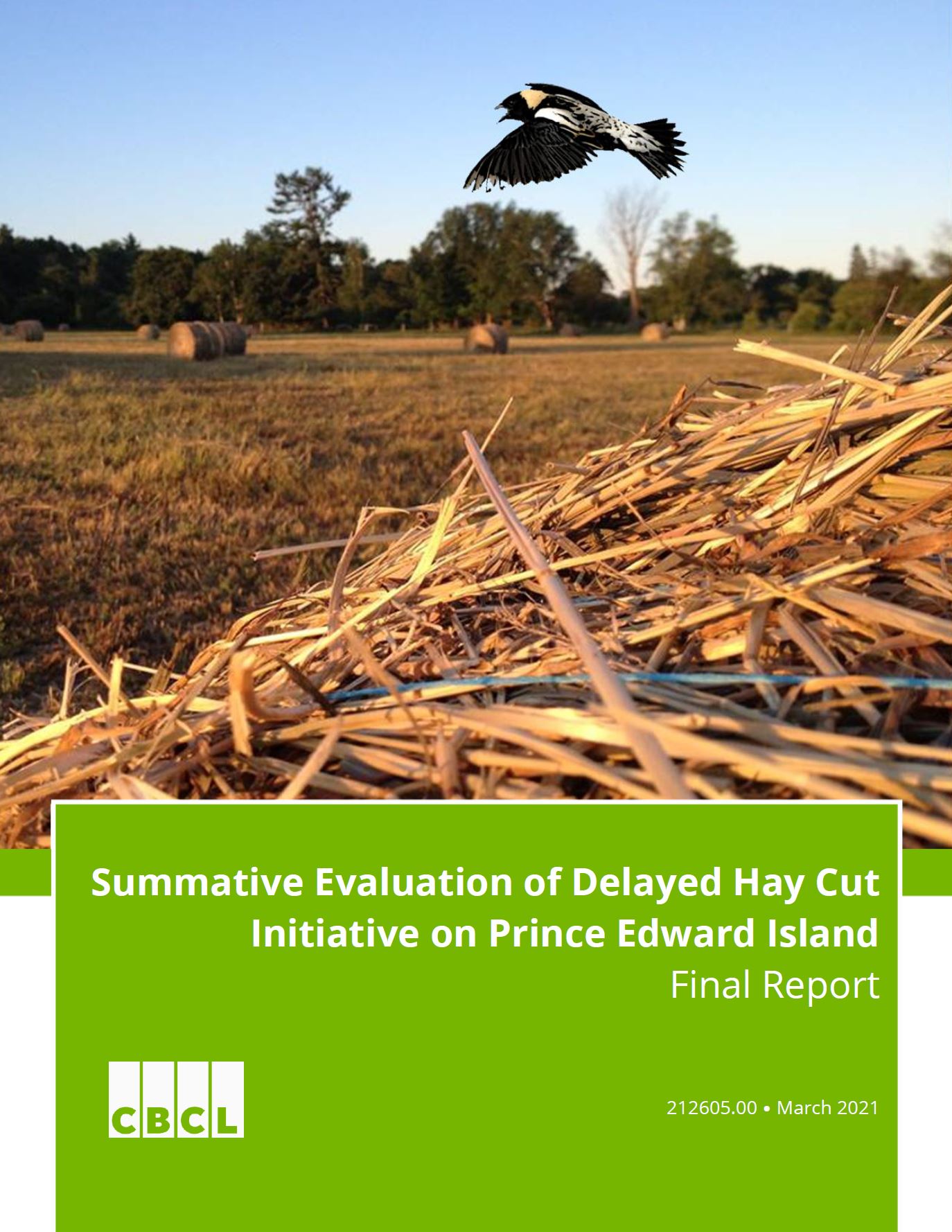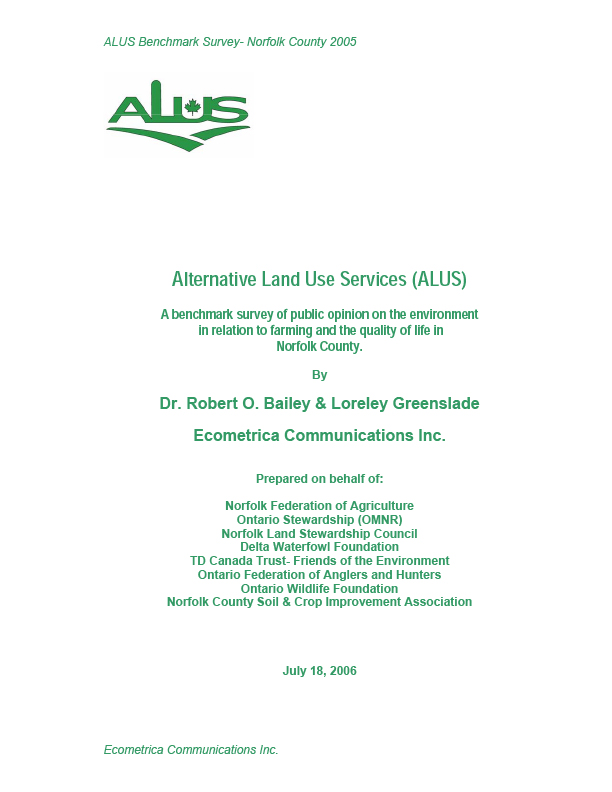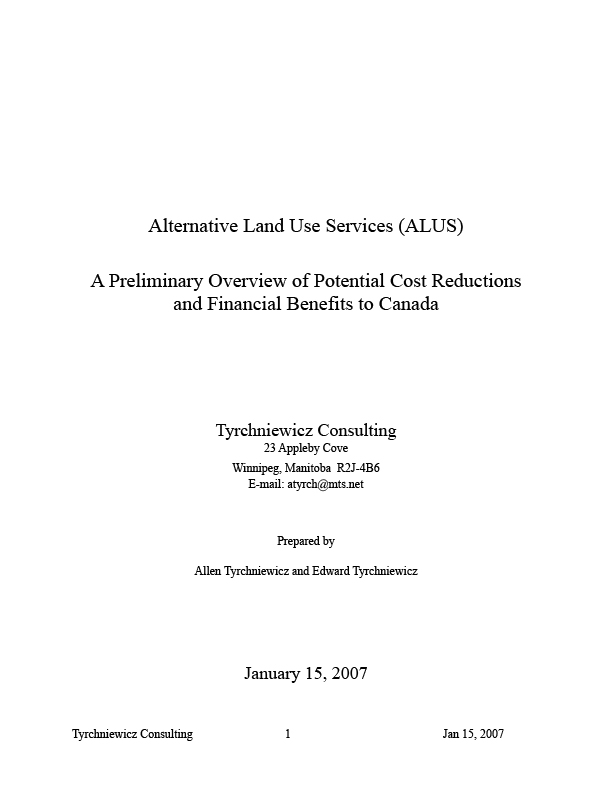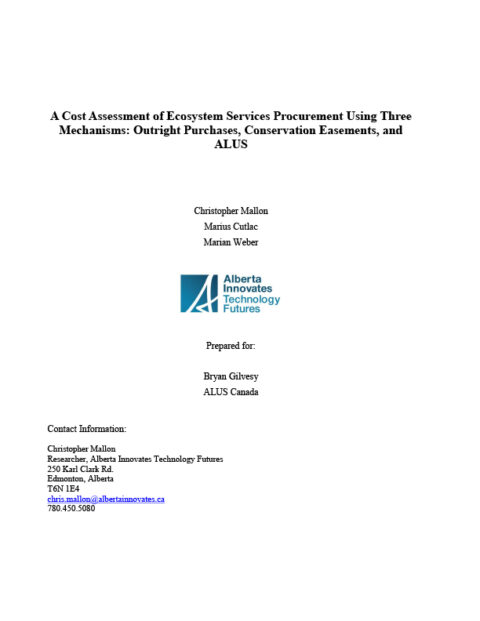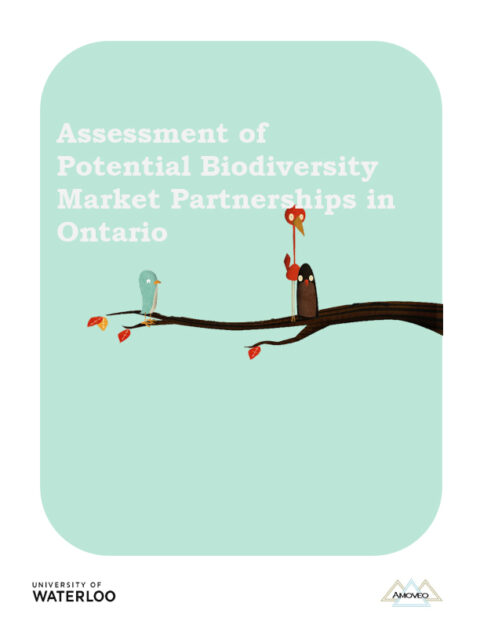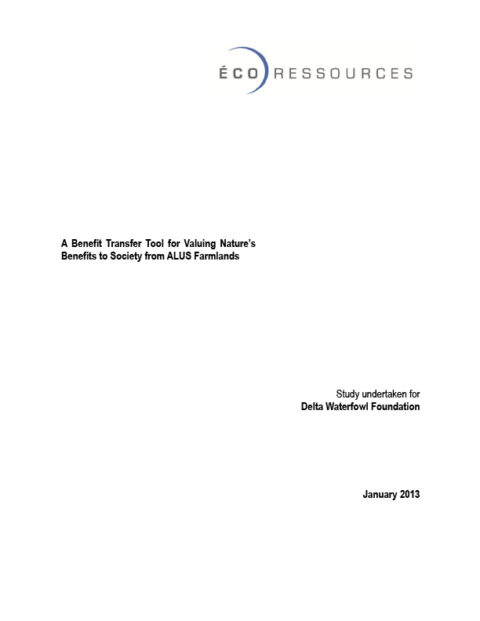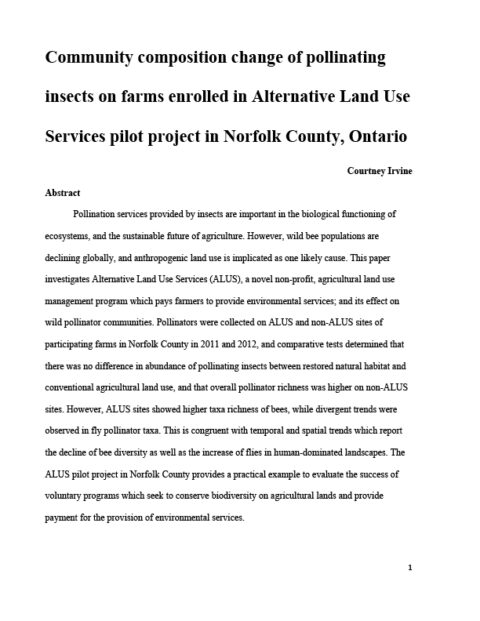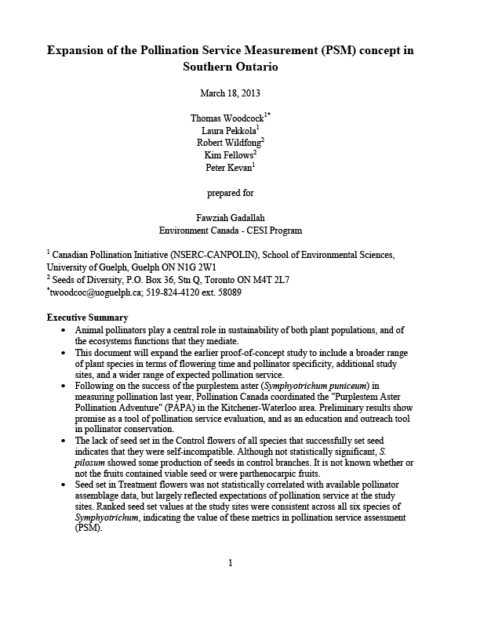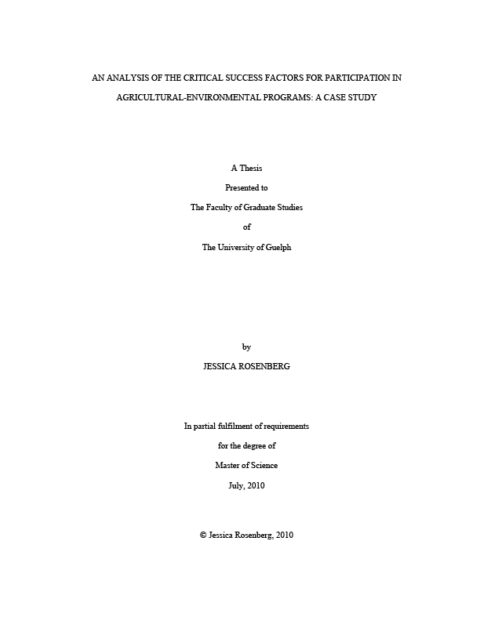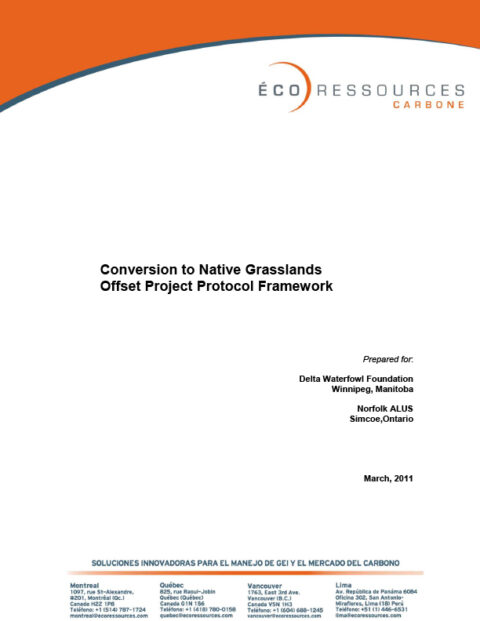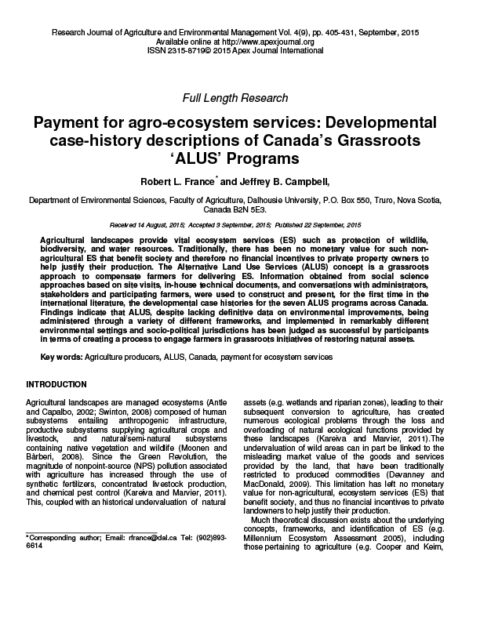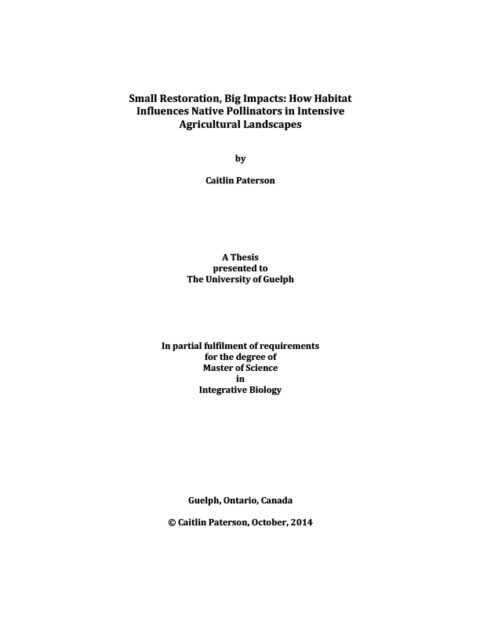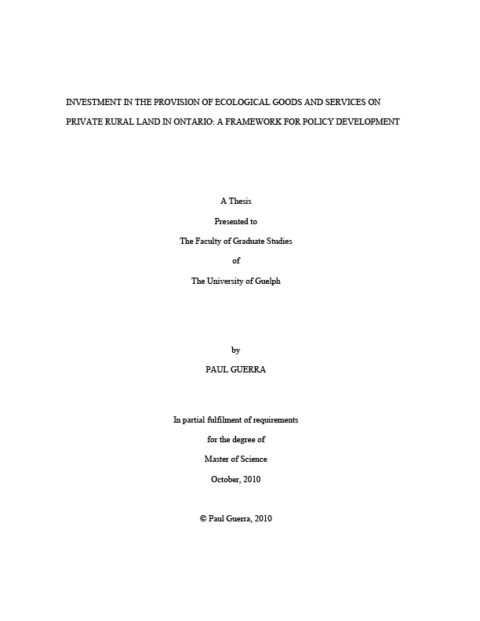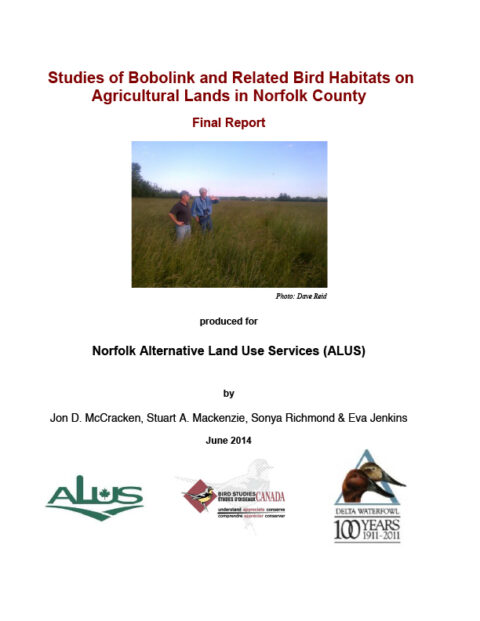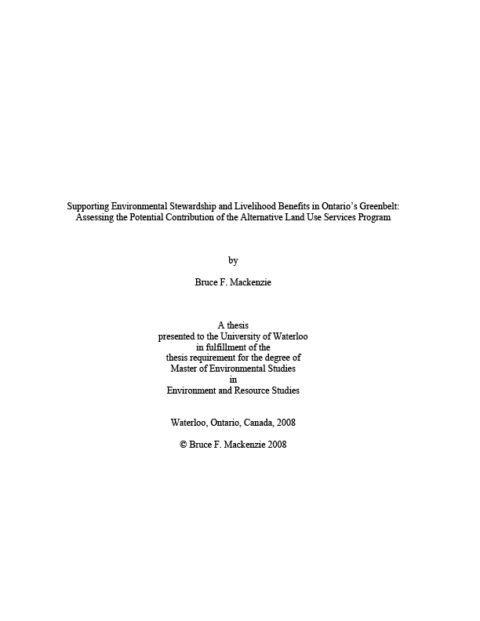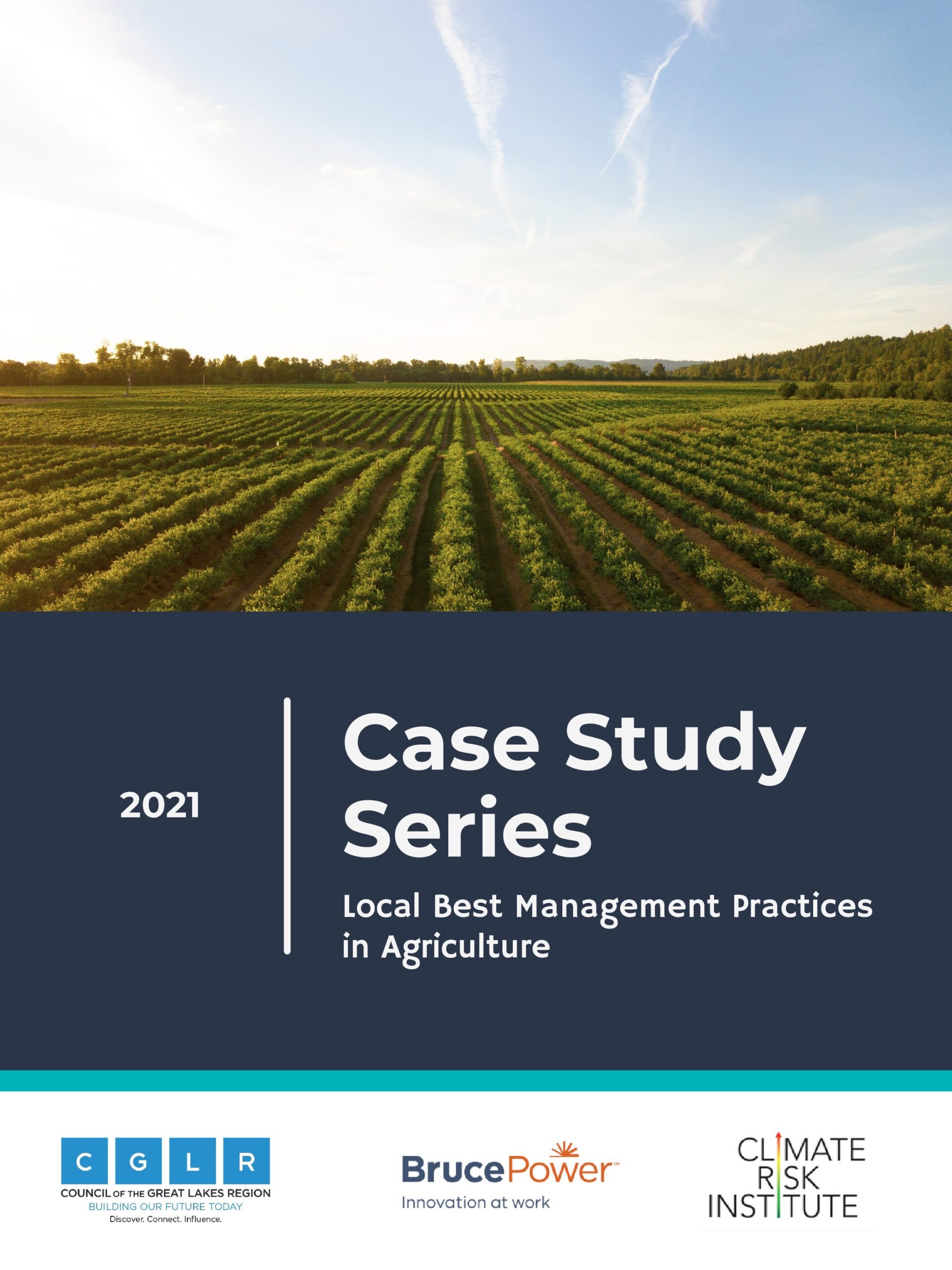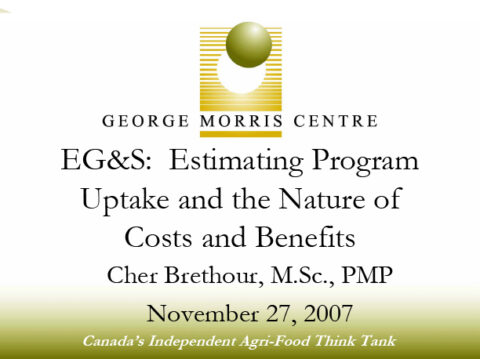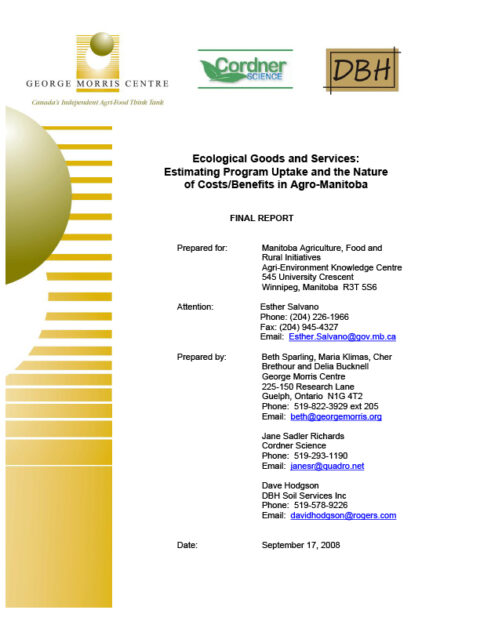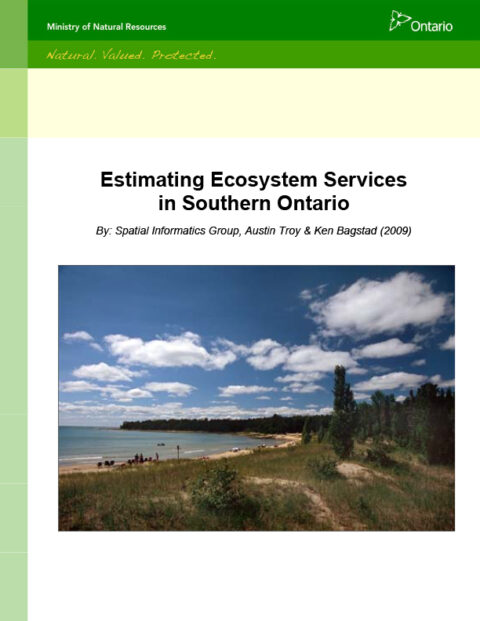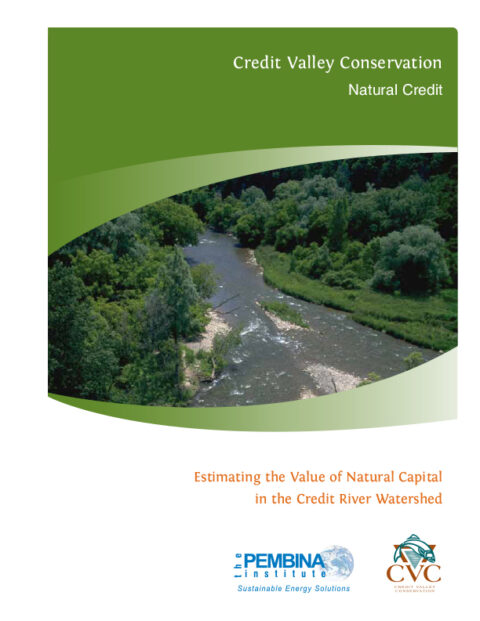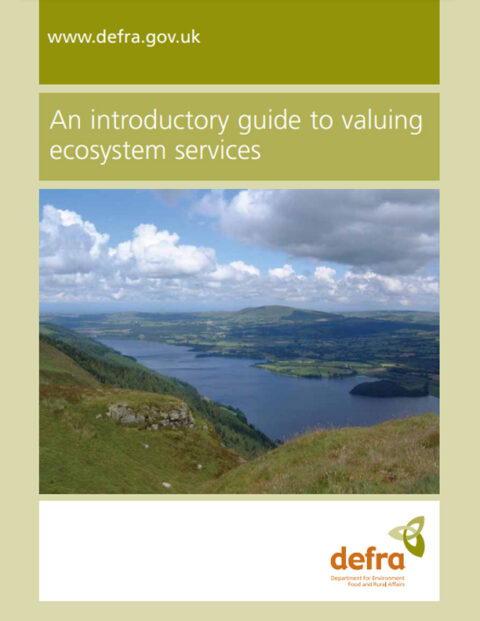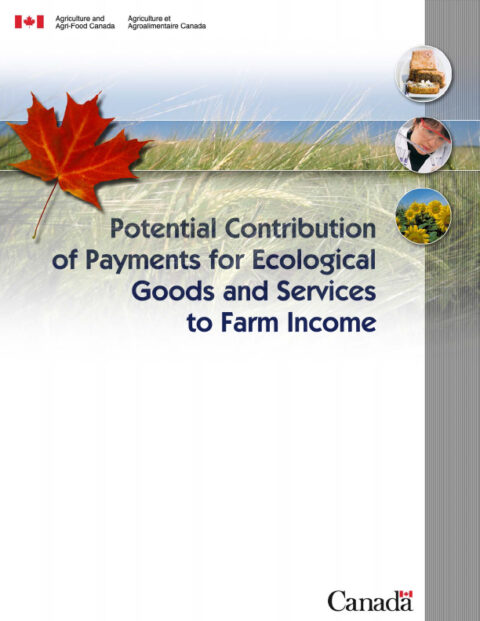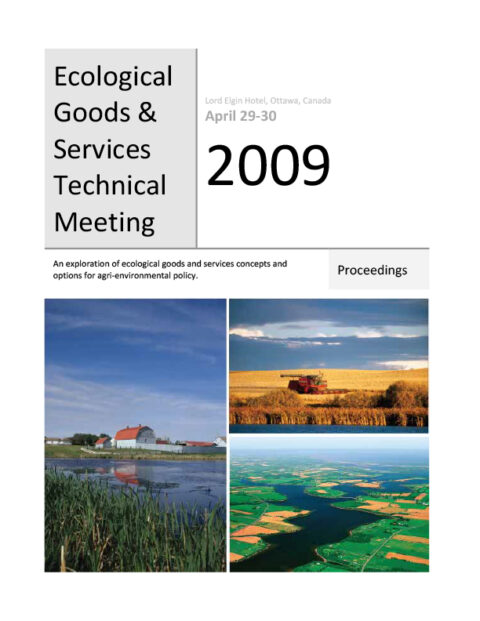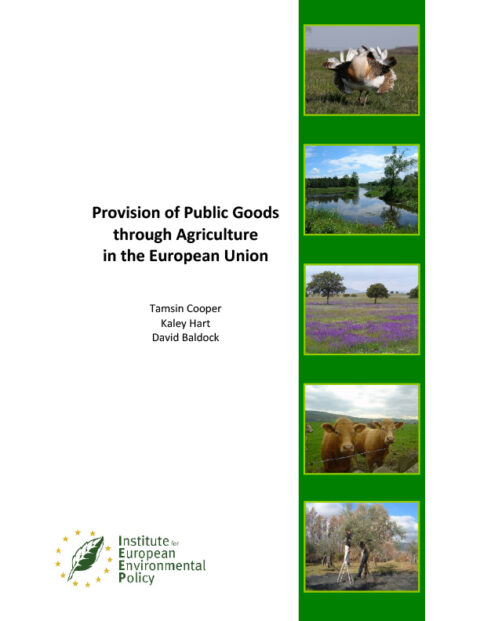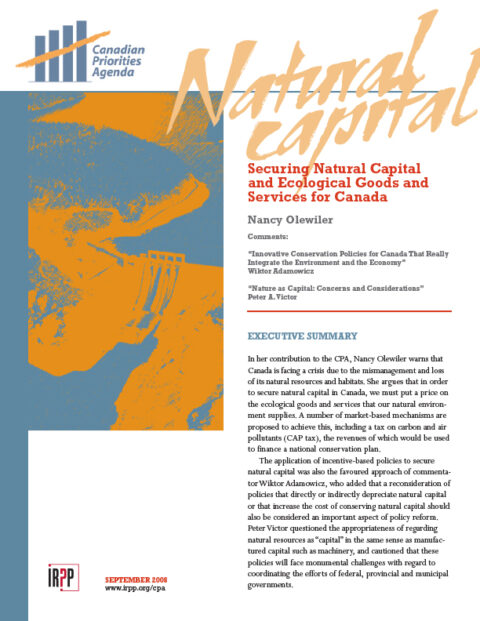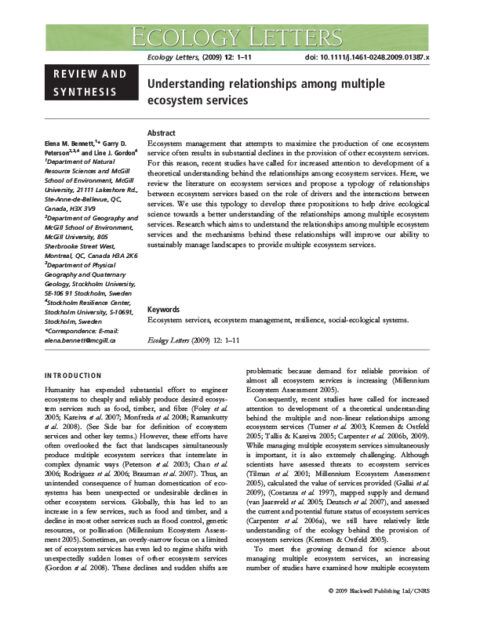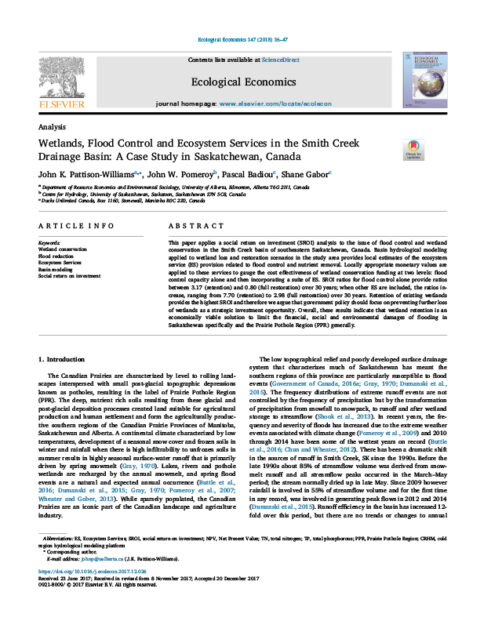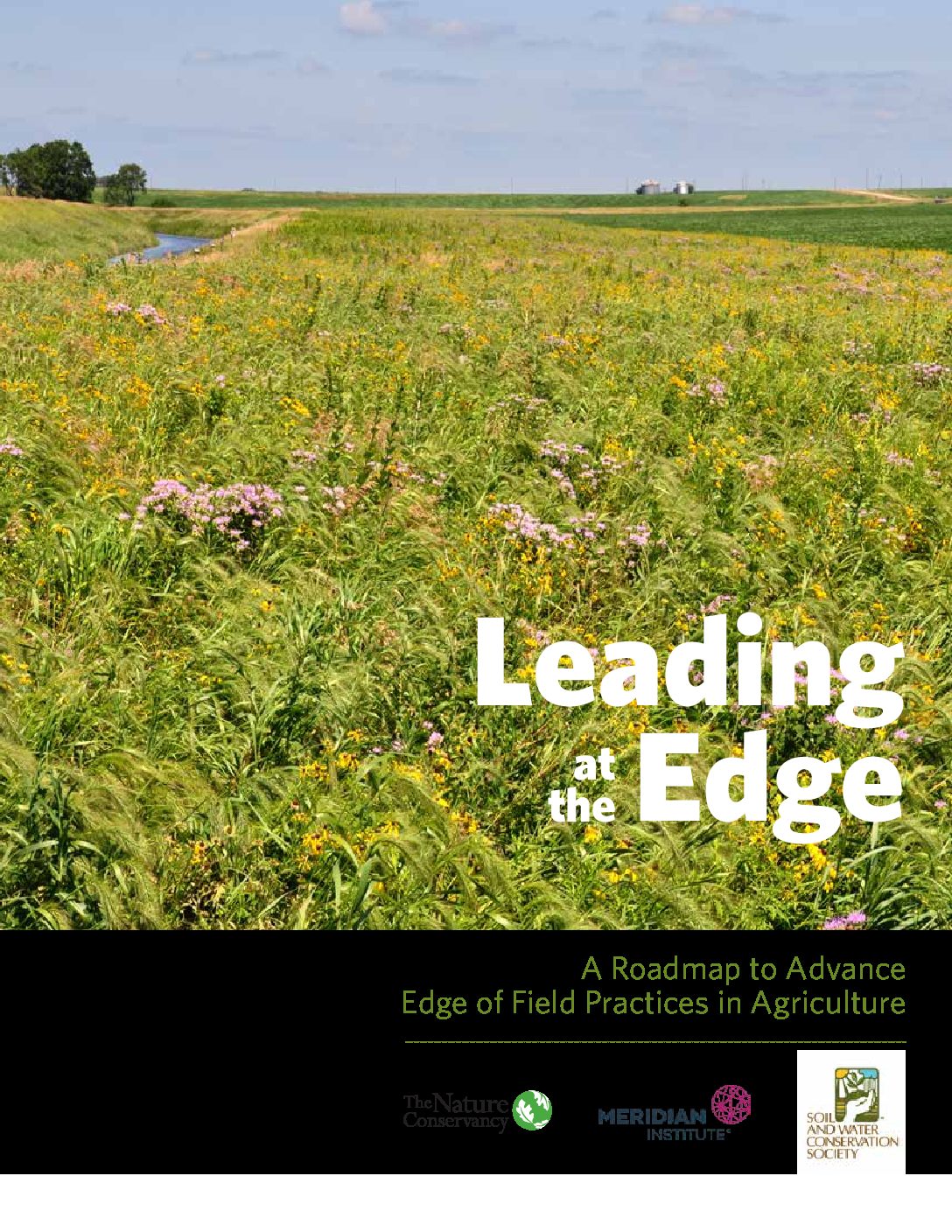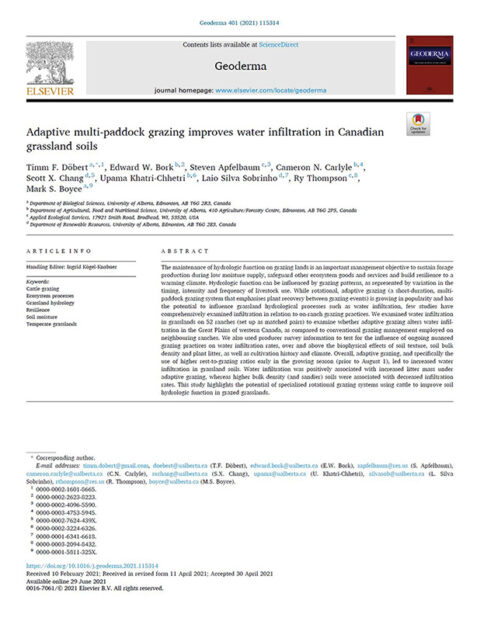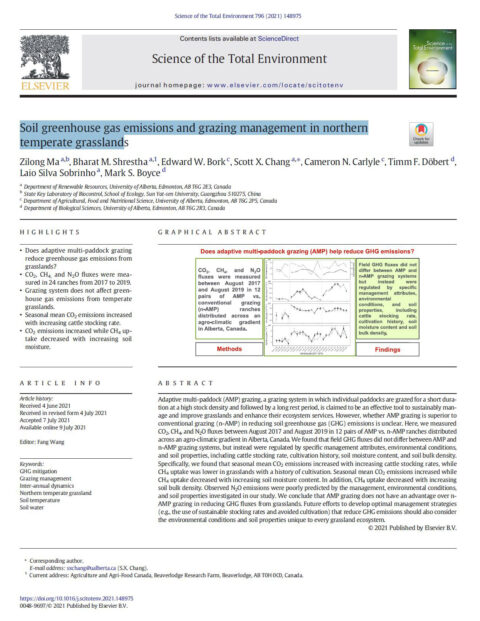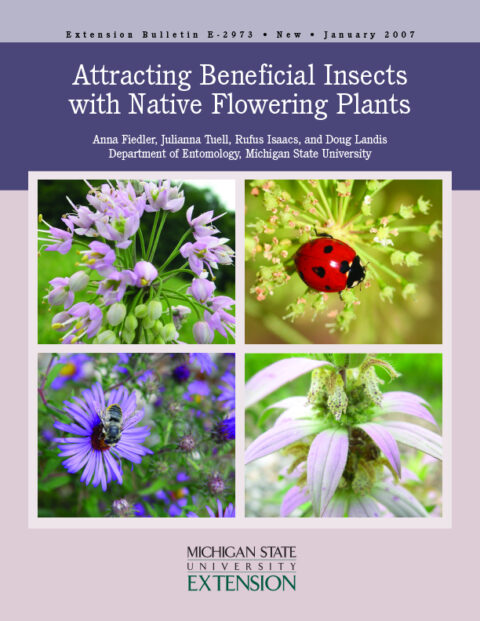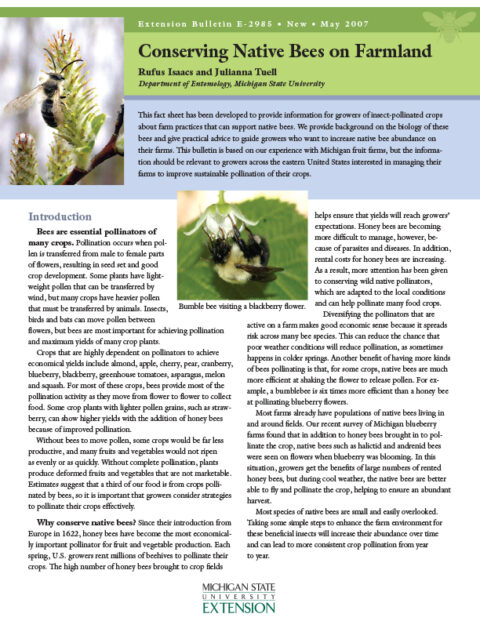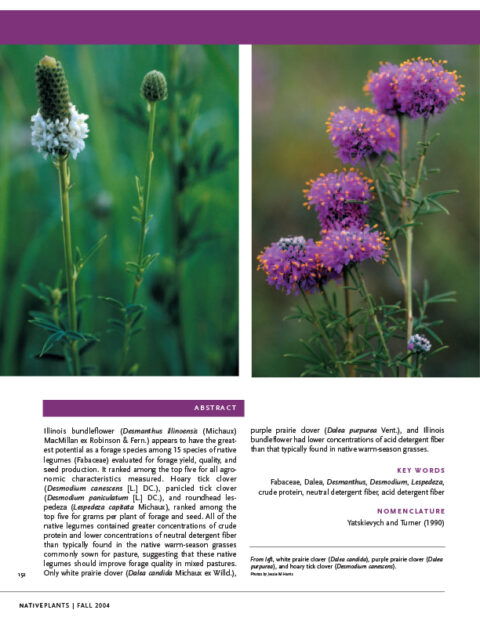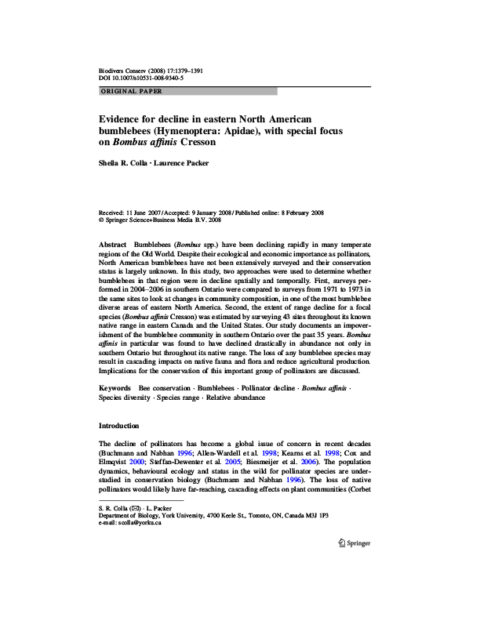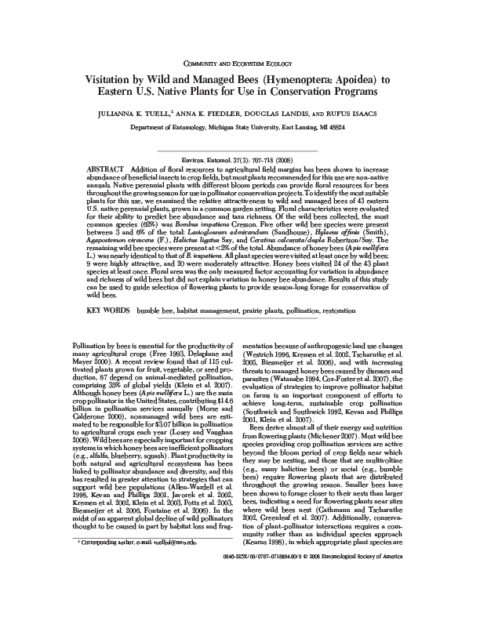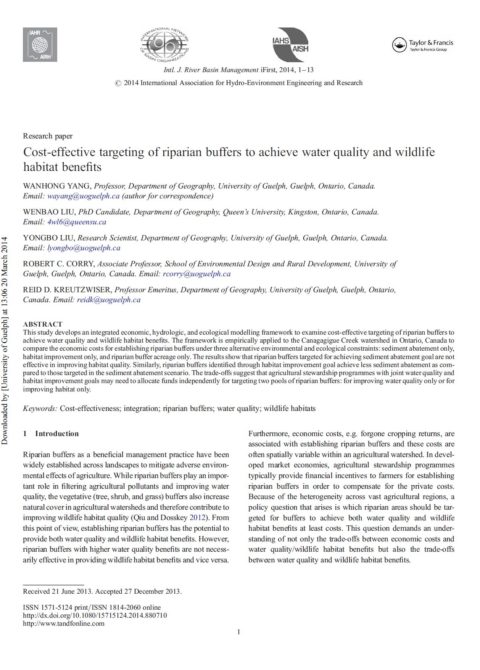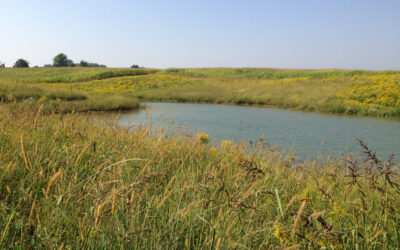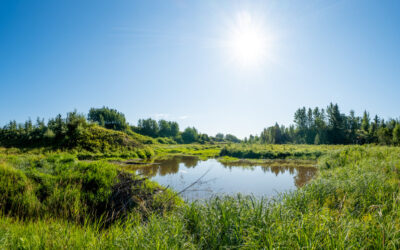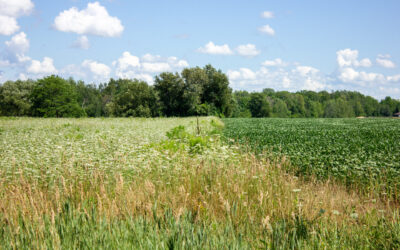Environmental Innovation, Technology and Local Solutions for Farmers and Ranchers
ALUS Guidebooks
ALUS Research
Summative Evaluation of Delayed Hay Cut Initiative on Prince Edward Island - Final Report
Report by CBCL Limited (2021)
Alternative Land Use Services (ALUS): A benchmark survey of public opinion on the environment in relation to farming and the quality of life in Norfolk County
Survey Report by Bob Bailey and Loreley Greenslade, Ecometrica Communications (2005)
Alberta Innovates: Cost Assessment of Ecosystem Services Procurement
Report by Alberta Innovates Technology Futures (2016)
Assessment of Potential Biodiversity Market Partnerships in Ontario-Amoveo Report ENBUS group
Research Project for the class of Pr. Goretty Dias, University of Waterloo (2012)
Community composition of pollinating insects on farms enrolled in Alternative Land Use Services in Norfolk County, Ontario
Research by Courtney Irvine, University of Guelph (2013)
Expansion of the Pollination Service Measurement (PSM) concept in Southern Ontario
Research by Tom Woodcock et al., University of Guelph & Seeds of Diversity (2013)
Payment for agro-ecosystem services: Developmental case-history descriptions of Canada’s Grassroots ‘ALUS’ Programs
Research by Robert L. France and Jeffrey B. Campbell, Research Journal of Agriculture and Environmental Management (2015)
Investment in the Provision of Ecological Goods and Services on Private Rural Land in Ontario: A Framework for Policy Development
Thesis by Paul Guerra, University of Guelph (2010)
Studies of Bobolink and Related Bird Habitats on Agricultural Lands in Norfolk County
Report by Jon McCracken (2014)
Other Research
Ecological Goods and Services
EG&S: Estimating Program Uptake and the Nature of Costs and Benefits in Agro Manitoba
George Morris Center (2009)
Estimating the Value of Natural Capital in the Credit River Watershed
The Pembina Institute and Credit Valley Conservation (2009)
Funding Natural Capital – Determining the Desired Characteristics of an Ecosystem Services Credit
Upstream Innovations; Alison Carlyle, Alex Watkins, Colin Little, Mackenzie Zettler and Sophia Sanniti (2014)
Potential Contribution of Payments for Ecological Goods and Services to Farm Income
Agriculture and Agri-Food Canada (2007)
Understanding relationships among multiple ecosystem services
Elena M. Bennett, Garry D. Peterson and Line J. Gordon (2009)
Leading at the Edge: A Roadmap to Advanced Edge of Field Practices in Agriculture
The Nature Conservancy, Meridian Institute, Soil and Water Conservation Society (2022)
Grazing
Adaptive multi-paddock grazing improves water infiltration in Canadian grassland soils
Dobert et al. (2021). Elsevier.
Soil greenhouse gas emissions and grazing management in northern
temperate grasslands
Ma et al. (2021). Elsevier
Pollination
Attracting Beneficial Insects with Native Flowering Plants
Anna Fiedler, Julianna Tuell, Rufus Isaacs, and Doug Landis, Department of Entomology, Michigan State University (2007)
Conserving Native Bees on Farmland
Rufus Isaacs and Julianna Tuell, Department of Entomology, Michigan State University (2007)
Evidence for decline in eastern North American bumblebees (Hymenoptera: Apidae), with special focus on Bombus affinis Cresson
Sheila R. Colla, Laurence Packer (2008)
Visitation by Wild and Managed Bees (Hymenoptera: Apoidea) to Eastern U.S. Native Plants for Use in Conservation Programs
Julianna K. Tuell, Anna K. Fielder, Douglas Landis, and Rufus Isaacs (2008)
Water Quality and Riparian Buffers
ALUS Innovation Stories
ALUS launches ALUS Nature & Climate Solutions to meet demand for credible agricultural nature-based solutions
The expanded suite of investment solutions responds to increasing demand from public, private and philanthropic sectors for tangible climate and biodiversity solutions that build community resilience and generate measurable results.Toronto, ON, May 3, 2024 – ALUS...
ALUS Joins 17 ENGOs in Proposing Key Recommendations to Reverse Biodiversity Loss
Halting and reducing biodiversity loss by 2030 will require a robust and accountable National Biodiversity Strategy, urges Canadian environmental groups.Toronto, ON - September 21, 2023 – Canadian environmental groups presented shared recommendations to the federal...
New Acre™ Project Releases Report Demonstrating Bruce Power Investment Delivers on Carbon Reduction Targets
Issued by Bruce Power’s Carbon Offset Coalition, the $1M investment is funding grassroots farmer-delivered nature-based climate solutions to reduce carbon emissions and enhance biodiversity, water quality and wildlife habitat through ALUS’ New Acre Project.GREY and...
Our Research Partners
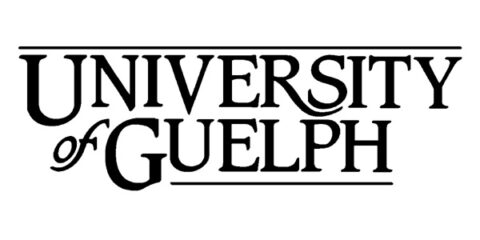
Dr. Wanhong Yang
Professor in the Department of Geography, Environment and Geomatics
Dr. Yang’s work, using his Integrated Modelling for Watershed Evaluation of BMPs (IMWEBs) application, validates the efficacy of ALUS project sites and will ultimately become an effective modelling and analysis tool for decision-makers across Canada to evaluate the benefits of the ALUS program as a cost-effective natural infrastructure solution that also fosters biodiversity.
In Ontario, Dr. Yang is conducting a cost-benefit analysis to evaluate the effectiveness of ALUS projects for phosphorus reduction within the priority regions identified by the Great Lakes Protection Initiative. This research is supported by a grant from the Ministry of Environment and Climate Change Canada (ALUS Norfolk, ALUS Middlesex and ALUS Chatham-Kent). In Alberta, Dr. Yang’s work is focused on the Modeste subwatershed of the North Saskatchewan River, which the Government of Alberta has identified as being a high priority for flood mitigation and water quality, and a moderate-high priority for drought. This research is supported by a grant from Alberta Environment and Parks’ Watershed Resiliency and Restoration Program (WRRP). With funding from the RBC Tech for Nature program, Dr. Yang has extended his modelling into three sub-watersheds in the Lake Erie Basin.
Watershed Evaluation Group, Dr. Wanhong Yang’s research program
Dr. Wanhong Yang receives 2018 Weston Family Ecosystem Innovation Award
About the Modeste Natural Infrastructure Project
Progress in Modeste Natural Infrastructure Project

Dr. Andrew MacDougall
Professor & Head of the MacDougall Ecology Lab, Department of Integrative Biology
Dr. Andrew MacDougall and his team at the MacDougall Ecology Lab at the University of Guelph’s Department of Integrative Biology, are studying the efficacy of ALUS’ prairie restoration sites in southwestern Ontario (primarily in ALUS Norfolk and ALUS Elgin) and quantifying the ecosystem services being produced including biodiversity, carbon sequestration and nutrient retention. Their research has confirmed the positive impact of ALUS projects for pollinators and beneficial insects—indicating a 300% increase in pollinators and beneficial insects after project establishments. The Lab’s research has also confirmed that ALUS projects:
• provide critical habitat for arthropods and promote biodiversity in agroecosystems.
• serve as a soil carbon sink/storage.
• impede 50-100% of nutrients from synthetic fertilizers, especially nitrogen and phosphorus, from leaching into ground and surface waters.

Dr. Amy Newman
Associate Professor & Head of the Newman Lab, Department of Integrative Biology
Dr. Amy Newman and her team at the Newman Lab at the University of Guelph’s Department of Integrative Biology studied avian biodiversity on ALUS farms in southern Ontario and worked with producers who are excited about the interface between restoration, preservation, and agricultural production. Dr. Newman’s research has validated the efficacy of ALUS project sites – confirming that bird species’ diversity and soil microorganisms significantly increase on ALUS projects sites. Her research on ALUS project sites has created a direct link to participants, piquing their interest and efforts to produce more biodiversity through their ALUS projects.
Amy Newman wins the The 2020 Weston Family Research Innovation Award

Dr. John Fryxell
Professor and Executive Director for Biodiversity Institute of Ontario
Dr. John Fryxell, from the Department of Integrative Biology at the University of Guelph, is working on ecosystem genomics research by gathering data across 30 sites in southern Ontario that range from intensively farmed cash cropped land to ALUS restoration areas. Dr. Fryxell’s work will provide deep datasets on the full suite of factors influencing arthropod and aquatic insect biodiversity in relation to farming practices, climatic variation, physical features, and landscape heterogeneity. This work will establish a standardized methodology for biodiversity monitoring and environmental impact assessment, identify key uncertainties with respect to field metrics based on DNA-based methodologies, and outline a framework for early warning of insect pest outbreaks and/or decline of beneficial insect species.

Dr. Nigel Raine
Professor, Rebanks Family Chair in Pollinator Conservation & Head of the Nigel Raine Lab, School of Environmental Sciences
Dr. Nigel Raine, the Rebanks Family Chair for Pollinator Conservation at the University of Guelph, has led a three-year study documenting the species richness and abundance of native pollinators in Ontario from which to establish baselines to track declines and causes of pollinator losses in the coming years. The Nigel Raine Lab is currently conducting baseline studies of native pollinators on a number of ALUS farms in Ontario.

Dr. Vijay Kolinjivadi
Institut Des Sciences De La Forêt Tempérée, Université du Québec en Outaouais
ALUS Prince Edward Island has worked closely with Dr. Vijay Kolinjivadi, a researcher from the Université du Québec en Outaouais’ Institute of Temperate Forest Sciences (l’Institut des Sciences de la Forêt tempérée, ISFORT) to facilitate interviews with participating farmers across PEI in 2017. The resulting work, “Putting nature ‘to work’ through Payments for Ecosystem Services (PES),” was published in Land Use Policy (81, 2019).
ALUS PEI research published in Land Use Policy (81, 2019)
Institut des Sciences de la Forêt tempérée de l’UQO (ISFORT)
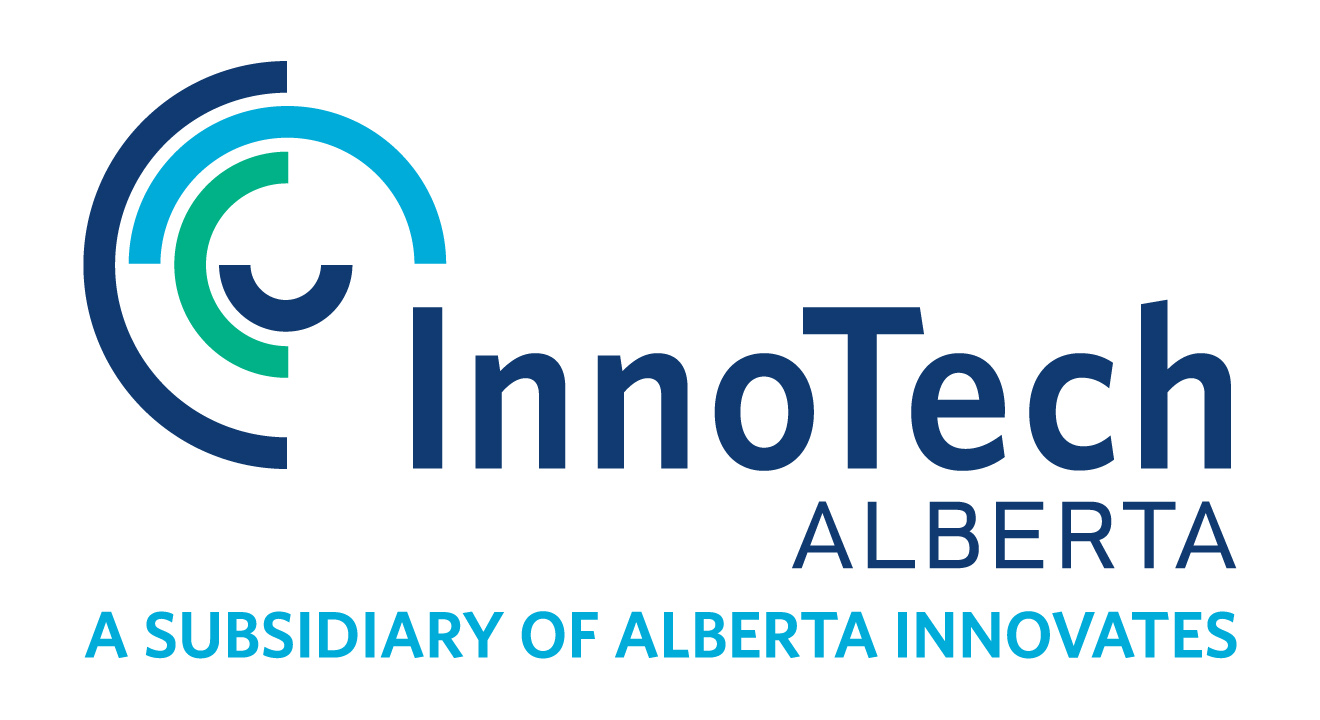
InnoTech Alberta
ALUS works with InnoTech Alberta on the Modeste Natural Infrastructure Project. InnoTech Alberta’s Dr Marian Webber is conducting an economic analysis of the costs and benefits of using nature to deliver infrastructure-related services in the Modeste subwatershed (ALUS Parkland, ALUS Brazeau, and ALUS Wetaskiwin-Leduc). This research is supported by a grant from Alberta Environment and Parks’ Watershed Resiliency and Restoration Program (WRRP).
About the Modeste Natural Infrastructure Project
Progress in Modeste Natural Infrastructure Project

Alberta Agriculture and Forestry
ALUS works with Alberta Agriculture and Forestry on several research projects. For example, Land Use Unit Lead Karen Raven and Geographical Information Systems Lead David Speiss have conducted social science research in the form of a multi-criteria decision mapping process with some ALUS Partnership Advisory Committees in Alberta.

The Ontario Badger Project
ALUS works with the Badger Recovery Team to help re-establish the North American badger in Ontario. Once common, the species has suffered from habitat fragmentation and is now listed as endangered both federally and provincially in Ontario. The Badger Recovery Team is currently radio-tracking badgers on 28 ALUS Norfolk farms, to track their movements and study their habitat and habits. People who see a badger or find a badger burrow on their farms are asked to report their sightings to Josh Sayers of the Ontario Badger Project: 1-877-715-9299.


